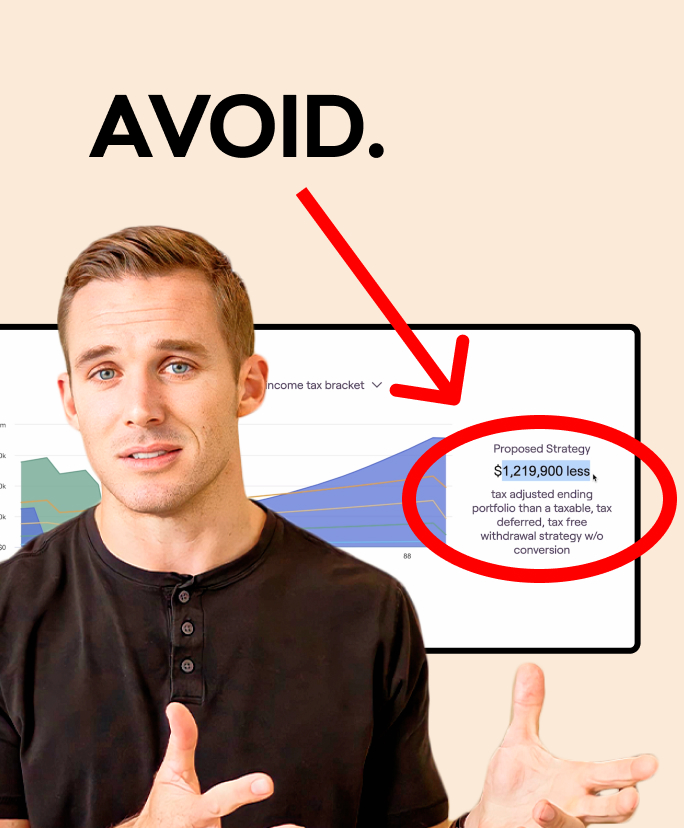After working with hundreds of clients over the years, we’ve noticed a powerful pattern: the biggest regrets in retirement aren’t about money. They’re about time, relationships, purpose, and the life people didn’t fully live—even when they had the financial means to do so.
Here are the five most common regrets we see retirees express—and what you can do now to ensure they don’t become your story.
1. They Didn’t Plan for Life After Work
Most people plan when they’ll retire. But fewer plan what they’ll retire to.
We’ve been conditioned to think of retirement as a math problem. Do I have enough? What’s my portfolio allocation? How much can I safely withdraw each month? And while these are absolutely critical questions, they’re only half of the equation.
The other half? Purpose. Identity. Joy. The “why” behind your financial strategy.
If you retire with a perfect plan but no vision, you may find yourself feeling restless, even regretful. The initial “freedom from” work (the alarm clock, the meetings, the commute) wears off surprisingly fast. What you need next is the “freedom to”—to travel, volunteer, create, connect, or simply enjoy your days with intention.
What to do now:
Ask yourself: If money wasn’t a concern, how would I spend my time? Who do I want to be in this next chapter? Don’t wait for retirement to figure that out—start shaping it now.
2. They Underestimated the Importance of Health
One of the most common things we hear is: “I’ll focus on my health once I retire.” But waiting too long can carry lasting consequences.
Your health isn’t just a nice-to-have in retirement. It’s the key that unlocks your dreams. Without it, travel becomes hard. Playing with grandkids becomes limited. Golf, hiking, long walks, creative hobbies—all of it depends on a healthy mind and body.
What to do now:
Even small steps matter: walking daily, stretching, eating intentionally. Think of health like compound interest—the earlier and more consistently you invest, the greater your return. You’re not just adding years to your life. You’re adding quality to those years.
3. They Let Relationships Drift
Work creates more structure than we often realize. It anchors your days, your routines—and your social life.
We’ve seen clients retire, only to find their social circles shrink. Some begin to feel isolated without coworkers, customers, or daily interactions. Even those who claim to love solitude often crave meaningful connection.
Studies confirm it: people with close relationships in their 50s are healthier and happier in their 80s. Relationships aren’t just about enjoyment—they directly affect your health, cognition, and longevity.
What to do now:
Be proactive. Nurture your friendships before you retire. Make a list of people you want to stay connected with. Think about how you’ll build new community—through volunteering, hobbies, or interest groups. Don’t assume connection will happen automatically. Like your finances, relationships require active investment.
4. They Expected Retirement to Feel Like a Vacation (Forever)
In the early days of retirement, many people describe feeling like they’re on a long-awaited break. The structure is gone. The pressure is gone. The freedom feels intoxicating.
But then something shifts.
The “vacation phase” ends. And what follows—if you’re not prepared—is a sense of being lost. You may wonder: What now? Who am I without my work? What gives my days meaning?
Dr. Riley Moynes describes this in his “Four Phases of Retirement” framework:
- Vacation – Pure freedom, no obligations.
- Loss – A lack of purpose and direction.
- Trial and Error – Exploring hobbies, routines, and interests to rebuild identity.
- Reinvention and Purpose – A new chapter of meaningful contribution and connection.
What to do now:
Don’t assume retirement will automatically feel fulfilling. Begin experimenting today. Try new things. Volunteer. Travel. Learn. Create. Purpose is rarely found—it’s built through curiosity, action, and reflection.
5. They Were Too Afraid to Spend
This might be the most heartbreaking regret of all.
We work with clients who’ve saved diligently for decades. They have healthy portfolios. They’ve done everything “right.” And yet, when it’s time to start spending, fear takes over.
The shift from saving to spending can feel unnatural. You’ve been building for so long—it feels wrong to start drawing it down. But when that fear stops you from living, it becomes a liability.
We’ve seen retirees with multi-million dollar portfolios who continue to live far below their means. Not because they have to—but because they’ve become emotionally tied to the number. And years later, they’re left with deep regret:
“I wish I’d taken that trip when my spouse was still with me.”
“I wish I’d spent more time with my grandkids while they were young.”
“I wish I hadn’t let fear stop me from living the life I actually wanted.”
What to do now:
Understand what your money is for. Yes, your portfolio is a powerful tool—but it’s not the goal. The goal is the life you want to live. That means aligning your finances with your values, creating a withdrawal plan that’s sustainable and fulfilling, and giving yourself permission to enjoy what you’ve built.
Final Thoughts: Don’t Let These Regrets Be Yours
The good news? Each of these regrets is avoidable.
By getting clear on your vision, prioritizing health, investing in relationships, planning for emotional transitions, and learning to spend with confidence, you can build a retirement that’s not just financially secure—but personally meaningful.
This isn’t just about planning your money. It’s about planning your life.
Want help designing a retirement plan that supports the life you really want? Visit Root Financial to see how we help clients build confidence, clarity, and peace of mind in their next chapter.
The information presented is for educational and informational purposes only and should not be construed as personalized investment or financial advice. The content discusses general retirement planning strategies and is not intended to recommend any specific course of action for any individual.
Examples provided are hypothetical and for illustrative purposes only. They do not reflect any specific client situation and should not be relied upon for investment decision-making. Past performance of investments is not indicative of future results. All investing involves risk, including the potential loss of principal.
This content is for illustrative and educational purposes only and does not constitute a recommendation or personalized financial advice.


